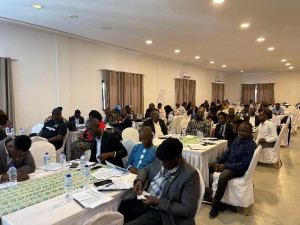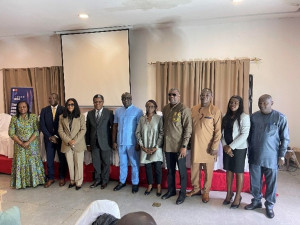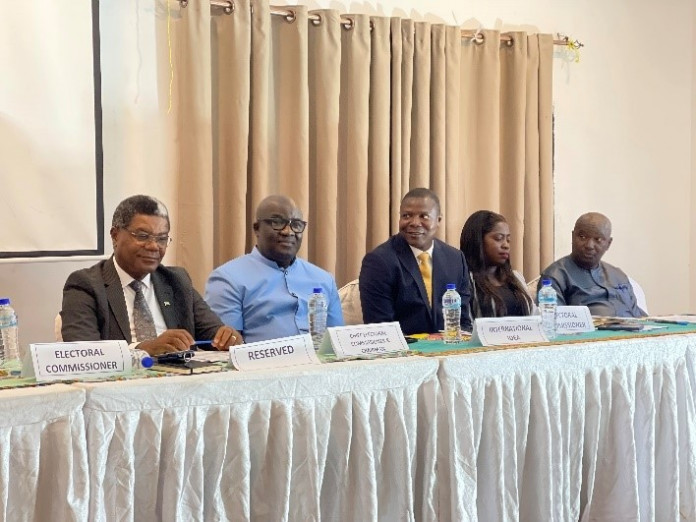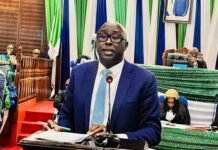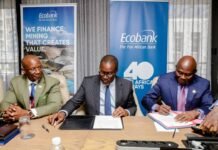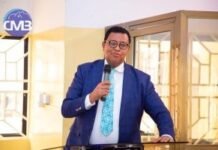By Foday Moriba Conteh
As part of their effort towards strengthening electoral systems in the country, the Electoral Commission of Sierra Leone (ECSL), with support from International IDEA, concluded a two-day post-election national stakeholders’ engagement on Thursday, July 18th, 2024. The engagement, themed: “Stakeholders Engagement to Strengthen Electoral Systems and Processes,” was held at the Sierra Palm Hotel on Beach Road in Freetown and brought together political party representatives, civil society members, elections management bodies, diplomatic partners and other stakeholders.
In his opening remarks, Edmond Sylvester Alpha, the Electoral Commissioner for the Southern Region, ECSL, emphasized the importance of constructive reflection on the 2023 elections and related issues. He highlighted the need for Africans to manage their own democratic processes, stressing, “We must have the urge to handle our democracy, as we can do it better.”
Idriss Mamoud Tarawallie, PhD, Head of Country Programme at International IDEA, underscored their mission to promote democracy through principles of representation, participation, rights and the rule of law. He stated, “We’re here today for a forward-looking process.”
Ibrahim Sorie Sesay, Secretary General of the All-Political Parties Association (APPA), noted the central role of political parties in promoting peace and national cohesion. Addressing feedback and allegations from the All-People’s Congress (APC) regarding the June 2023 elections, he stressed the need to strengthen democracy further.
On his part, the Chairman Electoral Commission of Sierra Leone, Mohamed K. Konneh stated, “We have started a rebirth for the 2028 elections,” emphasizing the importance of stakeholder feedback. He acknowledged that no election is perfect but affirmed their commitment to following the law.
Mohamed Konneh outlined the successes of the 2023 elections, including conducting them without deferring any polling stations and maintaining peace. He noted that the electoral system used was developed in 2007 and also utilized in the 2012 elections.
Emmanuel Gaima, PhD, Secretary to the President, delivered the keynote address, highlighting the crucial role of election management bodies in engaging citizens and enhancing their understanding of electoral systems.
He reiterated President Bio’s commitment to reviewing the 1991 Constitution of Sierra Leone to strengthen the country’s democracy.
The two-day engagement featured presentations and plenary sessions on legal reforms, voter registration, electoral systems and inclusion among other critical topics.
